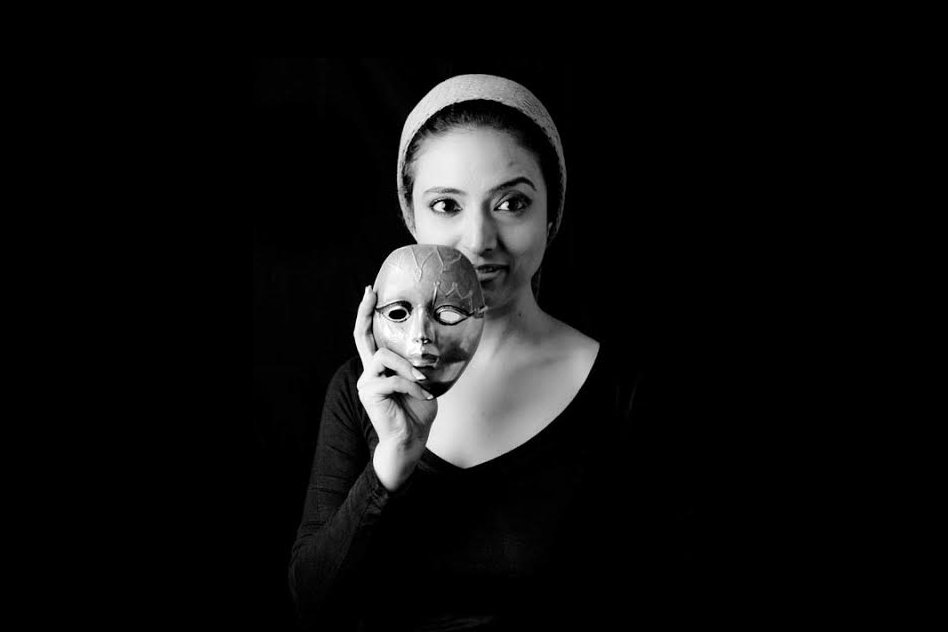
Empowering With Cinema: Pioneering Steps Towards Social Change And Education
1 April 2016 6:22 PM GMT
Editor : The Logical Indian Crew
We are an independent and public-spirited digital media platform for Indian millennials. We report news and issues that matter as well as give you the opportunity to take action.
Image Courtesy: Oorvazi Irani
Oorvazi Irani is an independent film-maker, film educationalist and acting coach based in Mumbai besides being the Director of her home production media company SBI Impresario Pvt. Ltd., incorporated by her father Sorab Irani in 1975. As a pioneer she is the only International Baccalaureate film teacher in Mumbai, and she understands the need for young minds to be nurtured into the powerful medium of cinema in a globalized and interconnected world. She has recently directed, produced and acted in the feature film “The Path of Zarathustra” which is probably the only feature film produced on the first prophet Zarathustra, an ancient faith followed by Parsis who are now a dwindling community on the possible verge of extinction. She shared her experience with us in an exclusive interview:
Who are you?
An artist – ever seeking, ever learning and striving to reach out and self-actualize. I prefer not slotting myself into fixed compartments and I play various roles that help me to keep my spirit alive and kicking – professionally I feel connected and excited by the medium of cinema and that is my universe in which I live.
I make films, I teach films, I write about films – or should I say I married cinema and have now given birth to little creations (films), it’s all in the family.
What do you think is the role of cinema? Do you think that films can bring social change?
Cinema is a medium that affects your emotions, your senses and your intellect and thus can bring about a change in a very complete and powerful manner, it is the combination of all the arts. It is the art of the modern century, the art of the future as it has technology as its central pillar.
Cinema, like all art, affects the world of ideas and emotions and that is where real change first occurs, the world is created from that space. Good cinema is like a seed it can grow a forest inside you. And yes, it can sow the seeds of a revolution in thought, in attitudes, in culture, in belief system, in law, in politics and fashioned on that would be the world you create and live in.
The Path Of Zarathustra is a film, which essentially talks about Zoroastrianism, why should a non-Parsi see this film?
I feel any film, any art for that matter talks about the specific and through that reaches out to the universal. My first short film “Mamaiji” was a cinematic portrait of my maternal grandmother and it was specific and personal but the audiences connected with the universal concept of a grandmother and each found their own in the image of my grandmother. Similarly, in this film even though the film is revolving around the Parsi faith of Zoroastrianism the film is tacking the universal aspect of belief system. It’s interesting that at the Kolkata International Film Festival, where my film was recently screened to a 800 packed audience, I had many non Parsis come up to me after the screening and congratulated me and quite a few said that they were moved with the experience and it helped answer some of their own personal deep rooted questions on faith and belief system.
As a creator of the above film, how have you managed to bring magic and reality on the screen together?
The film is in the magic realism genre – the narrative does not necessarily follow rational logic in time and space at all times and I would like to believe it has a magical spirit but the world inhabited at the same time is very real, there is great care in the production design including locations, props and costumes to portray a real world in all its detail. It’s not special effects that we are dealing with but a subtle rational logic that’s amiss and makes the experience challenging and hopefully stimulating. To illustrate my point, three characters in the film are first introduced to be real people in the real world but soon you realize they are not truly real and are spirits of the historical past, not spirits as in ghosts but creative manifestations of that spirit. As a film-maker, I find it very satisfying to be able to create a world, a universe with my film that is suspended between the real and the unreal (fantasy) and take the audience on this mysterious journey and hopefully in that gap I try to glimpse the truth with them.
How do you wish to contribute to social change using your art and craft?
Social change can be achieved by addressing important themes and ideas besides issues that need our attention, so as a film-maker, I strive to take up the cause of making such films, some are overtly social causes and some are more subtle and disguised. I feel all genuine art starts from oneself and therefore it stems from your identity and I will continue to discover myself and the world being a Parsi, a Zoroastrian, a woman and a human being.
What is your dream?
My dream is to stir the consciousness of individuals with my art with beauty and grace and nurture the youth empowering them with the language of cinema.
Any message for aspiring film-makers?
Seek your unique individual self before you create but that does not mean you procrastinate, if you want to make films don’t just think about it, go out and make it. On a lighter note if it would not be for father, I would still be thinking about that ideal film which I want to make, so I would say go out there and make those imperfect little works of art and strive for excellence.
When was the last time you decided to quit, but picked it up again and gave it one last try?
I had started the process of trying to get funds for my début feature film “The Path of Zarathustra” and for some time now there was no progress, father suggested to shelve the project. Even my well-wishers said that Parsis will not fund the film. This was my dark night and I felt all dejected but soon a thought replaced this dejection and I just made up my mind that this film has to be made come what may and once I did that it was actually like the universe conspired to make it happen. I got the funds and the film got made. I remember when I was young and had chicken pox, I think and looked at myself in the mirror, I hated myself the way I looked and was very depressed, and the disease was at its peak. And that’s when father said:
“Only when things get so bad that there is no choice, they have to get better after that. So, the dark night is when you prepare for the dawn and don’t give up as dawn is not far behind, and believing in it makes it come alive. It helps to find a deeper purpose in what you are doing and it drives you harder to succeed.”
The Logical Indian team salutes the spirit of this film-maker and wishes her success for all her future proejcts.
 All section
All section













